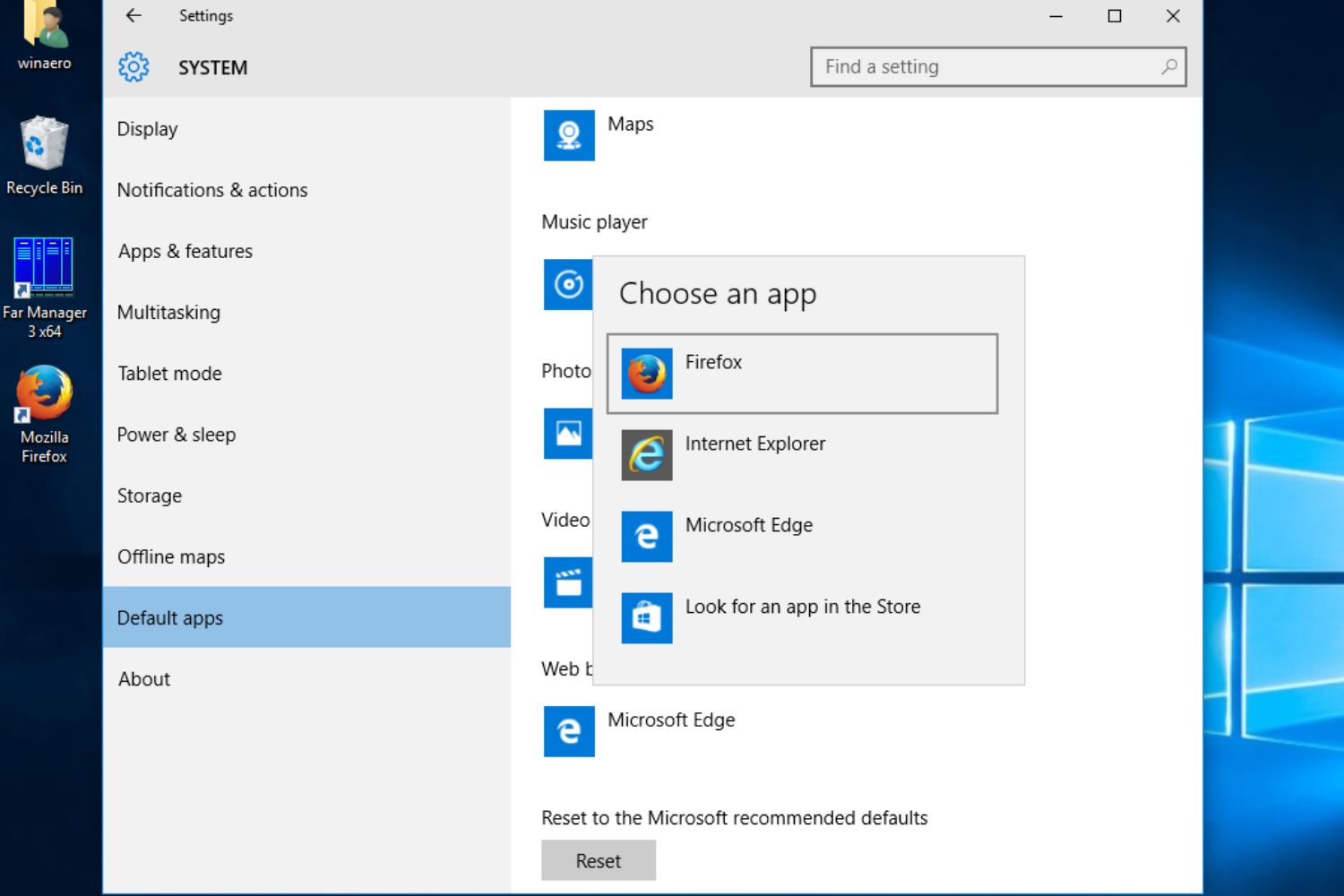Introduction
Imagine starting your computer, eager to dive into your work or leisure activities, only to find that Firefox launches automatically, disrupting your plans. This scenario is not uncommon, and it can be quite frustrating for users who prefer to have full control over their startup programs. Fortunately, there are simple solutions to prevent Firefox from opening at startup, allowing you to customize your computer's startup experience according to your preferences.
In this article, we will explore the steps to disable Firefox from opening at startup, providing you with the knowledge and tools to streamline your computer's startup process. Whether you are a seasoned computer user or someone who is just beginning to navigate the intricacies of technology, this guide will equip you with the necessary insights to manage your startup programs effectively.
By understanding how to control which applications launch when your computer boots up, you can optimize its performance and ensure a seamless and personalized user experience. Let's delve into the process of managing startup programs in Windows and take control of your computer's startup behavior.
Disabling Firefox from Opening at Startup
If you find yourself frustrated by the automatic launch of Firefox every time you start your computer, rest assured that there are straightforward steps to prevent this from happening. Disabling Firefox from opening at startup involves navigating through the browser's settings to adjust its behavior. By following the steps outlined below, you can regain control over your computer's startup process and ensure that Firefox only opens when you choose to launch it.
-
Open Firefox: Begin by launching the Firefox browser on your computer. Once the browser is open, proceed to the next step.
-
Access Options: In the top-right corner of the Firefox window, click on the three horizontal lines to open the menu. From the menu, select "Options." This will open a new tab with various settings and preferences for the browser.
-
Navigate to General Settings: Within the "Options" tab, navigate to the "General" section. This section contains essential settings related to the browser's startup behavior and default actions.
-
Adjust Startup Settings: Scroll down to the "Startup" section within the "General" settings. Here, you will find an option labeled "When Firefox starts." By default, this setting may be configured to "Show your home page" or "Show a blank page." To prevent Firefox from opening at startup, select the "Show a blank page" option.
-
Save Changes: After adjusting the startup settings, ensure that you save the changes by clicking the "Save Changes" or "OK" button at the bottom of the "Options" tab. This will apply the new startup configuration to Firefox.
By following these steps, you can effectively disable Firefox from opening at startup, giving you the freedom to launch the browser at your convenience. With this simple adjustment, you can personalize your computer's startup experience and eliminate the inconvenience of unwanted applications launching automatically.
Taking control of your startup programs empowers you to optimize your computer's performance and tailor its behavior to suit your preferences. With Firefox no longer launching at startup, you can enjoy a seamless and efficient startup process, allowing you to focus on your tasks without unnecessary interruptions.
Managing Startup Programs in Windows
Managing startup programs in Windows is essential for optimizing your computer's performance and customizing its startup behavior. By controlling which applications launch automatically when your computer boots up, you can streamline the startup process, reduce system resource consumption, and ensure a personalized user experience. Windows provides built-in tools that allow users to manage startup programs efficiently, giving them the flexibility to tailor their computer's behavior according to their preferences.
Using Task Manager
One of the primary methods for managing startup programs in Windows is through the Task Manager. To access the Task Manager, right-click on the taskbar and select "Task Manager" from the context menu. Alternatively, you can press "Ctrl + Shift + Esc" on your keyboard to open the Task Manager directly.
Once the Task Manager is open, navigate to the "Startup" tab. Here, you will find a list of programs that are configured to launch at startup, along with their impact on startup time. From this interface, you can enable or disable startup programs by right-clicking on the desired program and selecting the appropriate option.
By disabling unnecessary startup programs, you can reduce the time it takes for your computer to boot up and improve its overall responsiveness. This approach allows you to prioritize essential applications while preventing unnecessary programs from consuming system resources during startup.
Using System Configuration
Another method for managing startup programs is through the System Configuration utility. To access System Configuration, type "msconfig" in the Windows search bar and press Enter. In the System Configuration window, navigate to the "Startup" tab, where you can view and manage the programs that launch at startup.
Similar to the Task Manager, you can enable or disable startup programs by unchecking the corresponding boxes. Additionally, the System Configuration utility provides advanced options for managing startup services and boot parameters, giving users greater control over their computer's startup behavior.
Third-Party Software
In addition to the built-in tools provided by Windows, there are third-party software applications designed specifically for managing startup programs. These applications offer enhanced features and a more user-friendly interface for controlling startup behavior. Users can explore various third-party software options to find a solution that best suits their preferences and requirements for managing startup programs in Windows.
By leveraging these methods and tools, users can effectively manage startup programs in Windows, optimize their computer's performance, and personalize their startup experience. Taking control of which applications launch at startup empowers users to create a tailored computing environment that aligns with their specific needs and usage patterns.
With a streamlined startup process and optimized resource allocation, users can enjoy a more efficient and responsive computing experience, free from unnecessary interruptions and delays. By managing startup programs in Windows, users can harness the full potential of their computer while maintaining control over its behavior from the moment it boots up.
Conclusion
In conclusion, taking control of your computer's startup programs, including preventing Firefox from opening at startup, empowers you to personalize your computing experience and optimize system performance. By following the steps to disable Firefox from opening at startup, you can ensure that your computer boots up without unnecessary interruptions, allowing you to focus on your tasks without distractions.
Moreover, managing startup programs in Windows through tools such as Task Manager and System Configuration provides users with the flexibility to prioritize essential applications and streamline the startup process. By enabling or disabling startup programs based on individual preferences, users can tailor their computer's behavior to align with their specific needs and usage patterns.
The ability to manage startup programs effectively not only enhances the efficiency of the startup process but also contributes to a more responsive and personalized computing environment. By eliminating unnecessary startup programs and controlling application behavior at boot, users can optimize system resources and reduce the time it takes for their computer to become fully operational.
Furthermore, the empowerment to customize startup programs extends beyond preventing unwanted applications from launching at startup. It encompasses the broader goal of creating a computing environment that reflects individual preferences and usage habits. Whether it involves prioritizing productivity tools, optimizing system resources, or minimizing startup delays, managing startup programs allows users to shape their computing experience according to their unique requirements.
In essence, the ability to manage startup programs in Windows and customize Firefox's startup behavior empowers users to take charge of their computing environment. By leveraging the available tools and settings, users can create a seamless and efficient startup process that aligns with their preferences, ultimately enhancing productivity and user satisfaction.
By understanding and implementing the steps outlined in this guide, users can navigate the intricacies of startup program management with confidence, ensuring that their computer boots up smoothly and efficiently. With the knowledge and tools at their disposal, users can embark on a journey of personalized computing, free from the disruptions of unwanted startup programs and tailored to their individual needs.

























